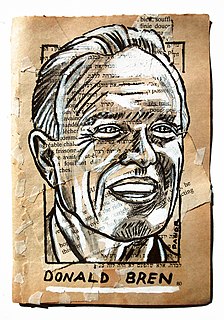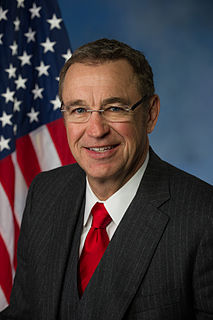A Quote by Donald Bren
Future public education will require involvement and collaboration among various local, civic, private and nonprofit entities, a concept I like to refer to as community entrepreneurship.
Related Quotes
We mustn't assume that we are going to deinvent government solely from inside the Beltway or within one or two sessions of Congress. We will do it one step at a time, in one community at a time - at the local level and through local institutions like churches, nonprofit and volunteer organizations and families.
Our Government understands that local, community organizations are essential in addressing social issues like economic development, poverty, education and integration in Canadian communities. The Community and College Social Innovation Fund will connect the innovative talent of researchers and students at colleges and polytechnics to meet the research needs of local community organizations to build stronger, safer, healthier communities.
A lot is being done to bring additional protective measures, particularly the critical infrastructure locations around the United States, ... There is a very active ... program of
coordination on this particular period of time with both public and private entities and at the federal, state and local levels.
We urgently need a paradigm shift in our concept of the purposes and practices of education. We need to leave behind the concept of education as a passport to more money and higher status in the future and replace it with a concept of education as an ongoing process that enlists the tremendous energies and creativity of schoolchildren in rebuilding and respiriting our communities and our cities now, in the present.
Sending our kids in my family to private school was a big, big, big deal. And it was a giant family discussion. But it was a circular conversation, really, because ultimately we don't have a choice. I mean, I pay for a private education and I'm trying to get the one that most matches the public education that I had, but that kind of progressive education no longer exists in the public system. It's unfair.
Community after community is rising up, ranchers, developers, environmentalists, and local commissioners, all saying this is not the best use of our public lands. It is a story that is largely unknown in the rest of the country. It is a disturbing and community-destroying example of domestic imperialism being waged against people in places deeply connected to the public lands that are our public commons. The Bush energy policy is a short-term strategy based on corporate greed instead of a sustainable vision of what best supports local economies and healthy ecosystems.


































